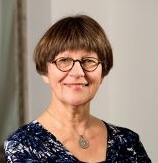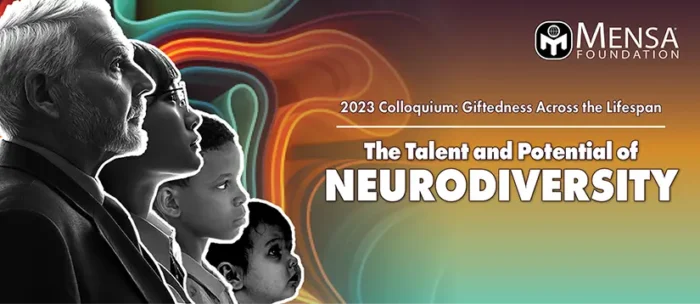This is a personal blog. It contains my own analysis and opinions drawn from years of inquiry. Although I discuss groups, I am not talking about individual people but about a broader phenomenon that concerns me.
Some readers may feel personally addressed or unseen; that is certainly not my intention. I want to examine the widespread use of the terms neurodiversity and neurodivergence and raise questions about them.
Because I have worked with knowledge about giftedness for 25 years, I am struck by the fact that giftedness is increasingly included in the concept of neurodiversity. Besides my general objections to the concept, I find that inclusion unfair.
Introduction
I increasingly read about the concepts of neurodiversity and neurodivergence. They are usually presented in a positive light. From an individual perspective I understand this: people experience them as an acceptance of being “different,” and that aspect is important. Everyone deserves to belong, even if their characteristics are uncommon.
However, I notice that the concepts are often adopted uncritically, while they raise concerns for me.
In this blog I explore why I have difficulty with the concept of neurodiversity. My objections, as already stated, are directed not at individual people but at the phenomenon itself.
This is difficult terrain, because it concerns people who are vulnerable. I know several such individuals personally and certainly do not wish to hurt them. I agree with the movement’s goals— inclusion and destigmatisation —but I oppose the term because, in my view, it does not work as intended and can even cause harm. I hope to set out my objections clearly and respectfully.
Meaning
The words neurodiverse and neurodivergent are not identical. Someone once explained the difference to me, but the explanation was unclear, and I wonder how the general public perceives it. In most contexts the terms are used interchangeably.
According to the online Van Dale dictionary:
- Neurodiverse: “Responding differently to social stimuli than most people.”
- Neurodivergent: “Deviating from the prevailing norm in social and/or cognitive skills.”
So there is a difference, but it is complicated to explain, and there is overlap. That is why most people use the terms interchangeably. I will do so as well, aware that this is not entirely correct.
History
The term neurodiversity refers to differences in people’s responses to social stimuli, supposedly based on brain characteristics. Neurodiverse people typically include those with dyslexia, dyscalculia, AD(H)D, or ASD. Those without such diagnoses are labelled neurotypical. The idea is that what was once regarded solely as a limitation can also— perhaps especially —have positive effects.
The concept first appeared in 1998. Australian sociologist Judy Singer, who is autistic and has a mother and daughter with autism, coined the term, drawing inspiration from women’s and gay‑rights movements. American journalist Harvey Blume helped publicise it. Both noticed that the neurological framing (“disorder”) was eclipsing psychotherapeutic perspectives and considered this a negative development.
The label soon expanded to people with schizophrenia, bipolar disorder, dyslexia and others, intending to signal that these conditions are disorders but not diseases.
Singer emphasised that the term should always be used intersectionally: race, gender, class and sexuality interact with neurological traits, shaping privilege and discrimination.
Social media significantly boosted the term’s popularity; books and articles appear regularly.
The Positive Aspects of Neurodiversity
- Reduced stigma: An umbrella term with a positive connotation comforts people with DSM diagnoses who face misunderstanding or stigma.
- Self‑recognition: Those who have always felt “different” find acceptance.
- Historical redress: Warm reception may partly respond to centuries of marginalisation of psychiatric disorders.
- Alternative framing: Neurodiversity offers an alternative to a medical model focused on “cure” or “correction.”
- Innovation narrative: Many writers claim that neurological diversity enhances creativity and problem‑solving.
Is Neurodiversity Only Positive?
Neurodiversity has become a trend. The concept is widely embraced; books and articles praise it. It also functions as a countermovement to the DSM, which many—including professionals—find increasingly problematic.
Tilburg University will host a free symposium on the subject in January 2025. It filled up immediately. When I asked whether a critical perspective would be included, the organisers replied, “Then come as a participant.” For a university, that seems an insufficiently academic stance.
So far I encounter almost exclusively positive statements about neurodiversity. I have reservations and questions, which I list in this blog.
I also see gifted individuals placed under the neurodiverse label—a group I have studied for 25 years. I object to this classification and will return to it later. Many of my critical remarks apply more broadly than to giftedness alone.
Critical Reactions
Negative or critical responses exist, though one must search for them.
- In Andrew Solomon’s Far from the Tree (2012) a chapter on parents of autistic children states:
“People who use ‘neurodiverse’ are a handful of loud voices who get a lot of media attention. They trivialise autism, and as a result there is less funding for people with ‘real’ autism.’’ - Neuroscience writer Mo Costandi (2019) calls the concept harmful, particularly regarding autism, echoing Solomon.
- Some reviewers find Saskia Schepers’ Als alle breinen werken (2023) too optimistic and unrealistic, calling its suggestions simplistic and unfeasible. The book also overlooks neurodivergent people who cannot work.
A Sideline: Autism
The term neurodiverse often immediately evokes autism. My image of autism differs from that of many who currently self‑identify as autistic and neurodiverse. Some call me old‑fashioned, claiming “classic autism” no longer exists—everything is now ASD. I am, of course, aware of the spectrum.
“Autism spectrum” first appeared in the 1970s – 80s and entered common use in the 1990s. Over time, the word autism in everyday speech has broadened: people apply it to anyone struggling with social expectations. Yet diagnosing ASD under the DSM remains specialist work—time‑consuming and complex.
Costandi argues that portraying autism merely as “variation” is incorrect; neuroscience shows autism to be a developmental disorder with genetic factors. He describes a widening gap between parents of severely autistic children and adults who frame autism through neurodiversity, emphasising strengths. One parent says, “They make autism trivial.”
It can seem as if these two groups describe entirely different conditions with the same name.
ASD is also frequently linked to giftedness, but studies show no correlation; co‑occurrence is rare. I often read media pieces about writers or comedians who claim autism. I see primarily their giftedness, shaped by upbringing and environment—but is pushing all of that under autism justified?
Negative Aspects of Neurodiversity: Ten Points
- The “neuro‑” prefix wrongly implies medical proof. There is no solid neurological evidence for a single category called neurodiversity. Most DSM diagnoses rely on interviews and questionnaires, not brain scans.
- Umbrella overload: What belongs under the term keeps expanding. Who decides?
- Labels persist: Even while using “neurodiverse,” people continue to cite individual diagnoses, causing confusion.
- Deriving rights: Some claim workplace accommodations purely by citing neurodiversity—treating it as a diagnosis.
- Logical fallacy: DSM terms denote disorders involving impairment. Re‑labelling them “not disorders” is contradictory.
- Romanticisation: Many celebrated strengths stem from high intelligence, not from ADHD, autism or dyslexia.
- Giftedness ≠ neurodiversity: Giftedness belongs to cognitive psychology, not psychiatry. Conflating them is misleading.
- Overuse of “autistic” or “ADHD” in daily speech: Casual self‑diagnosis fuels medicalisation and strains mental health services while diverting attention from giftedness.
- Missing those with severe needs: The upbeat narrative risks neglecting individuals who require intensive support.
- Unclear long‑term benefit: Broad slogans rarely translate into the tailored assistance diverse individuals actually need.
Why Is Giftedness Linked to Neurodiversity?
- Some gifted people who struggle seek a DSM label (often ADHD or ASD) to access paid help. If their intelligence goes unrecognised, misdiagnosis follows.
- Once their giftedness is discovered, they may still cling to the diagnosis—sometimes because it brings support, sometimes because it has become part of their identity.
- Giftedness can co‑occur with ADHD or ASD, but because both are rare and uncorrelated, the overlap is rarer still.
- Gifted people with dyslexia often compensate through intelligence; the advantage lies in intellect, not in dyslexia.
Finally
I wrote this blog because I am worried, and because people keep asking why I object to the “beautiful” concept of neurodiversity and why giftedness should not fall under it.
My argument is multifaceted. Gifted individuals are close to my heart. With more knowledge of giftedness and more peer contact, we can greatly improve their lives.
I share the aspirations of the neurodiversity movement and wish everyone success who benefits from the term. My concern is that, in the long run, the concept may solve little and cause harm. Fundamentally, I believe giftedness does not belong under it.










Comments (0)